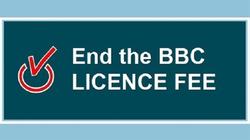 The British Broadcasting Corporation (BBC) finishes the year on a miserable note, as the latest polls show it is lagging behind other major British broadcasters in terms of popularity and acceptability.
The British Broadcasting Corporation (BBC) finishes the year on a miserable note, as the latest polls show it is lagging behind other major British broadcasters in terms of popularity and acceptability. RNA - In the latest opinion poll by Savanta/ComRes, a London-based market research group, a clear majority of the British public support scrapping the license fee, the BBC’s financial lifeline.
According to the poll, two-thirds of respondents believe that the £154.50 annual license fee should either be scrapped or significantly reduced.
The same poll found that only 69 percent trusted the BBC, whilst 73 percent trust its closest competitor, ITV.
The Savanta/ComRes poll is based on 2,000 adult respondents and it was conducted between December 18 and 20.
The Daily Mail (December 27) quotes Savanta/ComRes chairman, Andrew Hawkins as claiming that UK broadcasting is set to “evolve massively” over the next “five to ten years”.
“The General Election showed that trust is at a premium but also that the BBC no longer has a monopoly on it”, Hawkins added.
In a fresh blow to the Beeb, yet another opinion poll appears to confirm the findings of Savanta/ComRes.
The polling by Public First, published in the Sunday Telegraph (December 28), suggests that 74 percent of the British public support abolishing the license fee.
A breakdown of the figures into specific demographics suggests a generational divide, as younger people express greater support for abolishing the license fee.
According to Public First, 78 percent of respondents in the 18 to 24 age group are supportive of abolition, whereas only 64 percent of over-65s favour scrapping the license fee.
There is also a regional divide with only 64 percent of Londoners supportive of abolition, whereas a stunning 83 percent of people in the North West of England support the move.
The Public First poll is based on a sample of 1,000 adults and was conducted in late December.
These startling figures have drawn a strong reaction from the giants of British broadcasting.
The Sunday Telegraph quotes broadcasting executive and competition regulator Dame Patricia Hodgson, who chaired the broadcasting watchdog Ofcom from 2014 to 2017, as calling for a radical shakeup to the BBC’s funding model.
“We should start to either freeze or reduce the licence fee to incentivise the BBC into using broadband technology for subscription top-ups, so we’re progressing to a new funding base after 2027”, Hodgson said.
By Royal Charter, the BBC license fee is set in stone until 2027, however small adjustments can be made from 2022.
For its part, the BBC has reacted negatively to the double polling which calls into question its privileged position in British broadcasting.
The Daily Mail (December 27) quotes a BBC spokesman as saying the following about the Savanta/ComRes poll: “Research has shown that the BBC is seen as the most trusted, accurate and impartial source of news. This poll appears to ask people questions without any context”.
The same BBC spokesman claimed he didn’t “recognise the figures” presented by the Public First poll.
The BBC license fee was first introduced in 1946 and its cost has steadily increased over the decades to its current value of £154.50 (for colour Televisions). Failure to pay the obligatory fee (which is essentially a form of taxation) is a criminal offence which can potentially attract a custodial sentence.
Critics have long argued that the license fee – which is backed up by the full force of the law – places the BBC at a tremendous advantage vis-à-vis commercial broadcasters.
But the tide is clearly turning as commercial broadcasters (flush with private money) are beginning to produce better content than the BBC across a broad range of topics, from entertainment to documentaries.
According to the former Ofcom Chairwoman (Hodgson), the BBC’s declining calibre came into sharp relief during the general election.
“It was undoubtedly the case that ITV news better reflected the range of what was going on in the nation … There was more analysis; there was a lot more in-depth pieces from across the nation, and I’m afraid I think the reason for that was commercial funding”, Hodgson said.
847/940